EngageNY
TASC Transition Curriculum: Workshop 6
Is a college education necessary for success in today's world? The class investigates the question, along with others at the end of the sixth workshop in a 15-part series. The lesson has four parts with multiple activities and...
New York State Education Department
TASC Transition Curriculum: Workshop 10
How have educational standards evolved? Educators of adults examine expectations in the 10th workshop out of 15 to better determine how standards have grown. Participants respond to a variety of sample questions to determine how they...
The Write Place
Literacy Education Online: Sensory Details
This site provides several sample sentences which show sensory details and aid students in writing specific rather than general sentences. It is a good site for someone preparing to write a descriptive essay. W.9-10.3d Precise/sensory...
Texas Education Agency
Texas Gateway: Explain the Controlling Idea, Purpose, and Distinguish Details
[Accessible by TX Educators. Free Registration/Login Required] In this lesson, students will learn how to pinpoint the controlling idea, which not only identifies the main idea, but also answers questions about the author's goal or...
Writing Fix
Writing Fix: Specific and Memorable Details
The Important Book, written by Margaret Wise Brown, provides a very specific writing pattern that even the youngest of writers can imitate. Requiring these types of patterns for writing tasks provides safety for all students, and when...
ReadWriteThink
Read Write Think: Writing Workshop: Helping Writers Choose and Focus on a Topic
Students engage in writing workshop, using a timeline to focus in on and write about a specific event.
Texas Education Agency
Texas Gateway: Analyze Thesis, Purpose, Textual Elements in Informational Text
[Accessible by TX Educators. Free Registration/Login Required] This lesson focuses on how to locate the controlling idea or thesis and specific purpose in a text and analyze the roles they play in understanding what you read. You will...
Other
Study.com: How to Use Descriptive Details & Sensory Language in Your Writing
When you write a narrative, you can draw your reader into your experiences by adding specific, concrete details and sensory language to your storytelling. This lesson tells you exactly how to do it. W.9-10.3d Precise/sensory details,...
University of North Carolina
University of North Carolina: Writing Center: Writing About Literature (Fiction)
Students are instructed in a nine-step process of how to write a literary response paper that includes a thesis, strong ideas, and specific supporting details from the text. W.11-12.9a Amer Lit 18th,19th, 20th cen/Analy
Writing Fix
Writing Fix: You're on a Gigantic Roll
In this activity the writer will imagine and compose a descriptive paragraph that focuses on a gigantic object moving through a specific setting and leaving destruction in its wake, modeled after the book James and the Giant Peach by...
Utah Education Network
Uen: Patterned Paragraphs
Learners will learn about the importance of including specific details when writing. Students will watch the teacher model "How to Make a Peanut Butter Sandwich." Then student will replicate the process for writing with specificity as...
Other
Learning at the Primary Pond: 3 Effective Strategies for Teaching Revising
A literacy specialist shares three effective strategies for teaching students revising techniques. These include providing students with specific criteria and peer revision. Examples of resources used in a classroom lesson are pictured.
Leaf Group
E How: How to Write a Talking Points Paper
This article by Byron Walsh focuses on writing a talking points paper for a public speaker which consists of researched, accurate information provided in bulleted lists with follow up sentences on specific topics.
Texas Instruments
Texas Instruments: Writing Equations of Parabolas in Vertex Form
Students use their knowledge of the vertex form of a quadratic equation to graph parabolas, given a specific move to make.
The Write Place
Literacy Education Online: Logical Fallacies
This site from the St. Cloud State University provides many links in this index with general writing help. Under "Development" you'll find "Sensory Details." Under "Logical Fallicies" you'll find a link by the same name. Look under...
Tom Richey
Slide Share: Claim Evidence and Reasoning
A slideshow with twelve slides about reading or writing an argument, analyzing the claim and looking at how it is supported with observation, evidence, and reasoning.
Alabama Learning Exchange
Alex: "How to Build a Snowman" Expository Writing
During this lesson, 4th graders begin to understand how important specific directions are to a project. Students will demonstrate detailed writing in order to instruct their classmates on how to build a snowman.
EL Education
El Education: Field Guide to Insects in Western Massachusetts
This field guide was created by 2nd graders in Springfield, Massachusetts. It was part of a two-month Learning Expedition that included field observation and collection, classroom experimentation and research, reading from books and...
Polk Brothers Foundation Center for Urban Education at DePaul University
De Paul University: Center for Urban Education: Animal Studies [Pdf]
"Animal Studies" is a one page, non-fiction, reading passage about scientists learning about animal behaviors by observing them. They discuss the sawfly and poppy-bees specifically. It is followed by constructed-response questions which...
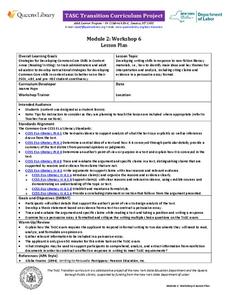

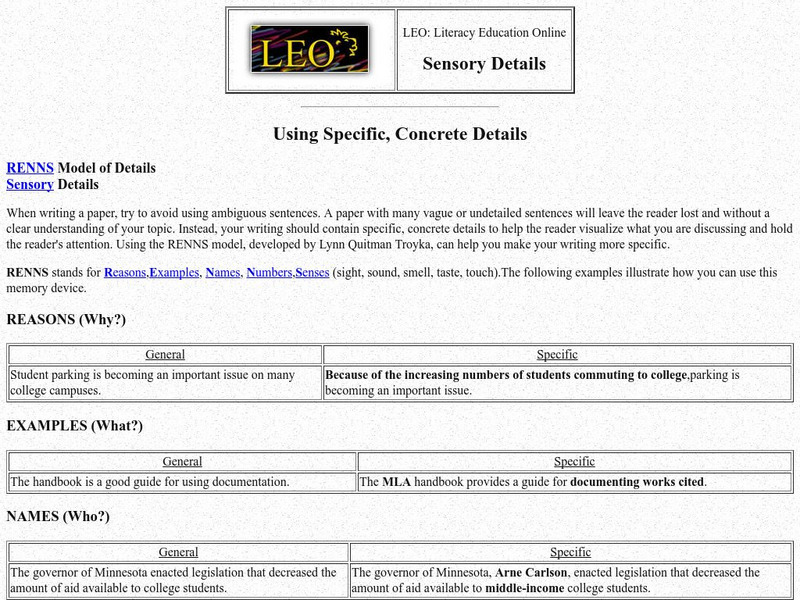

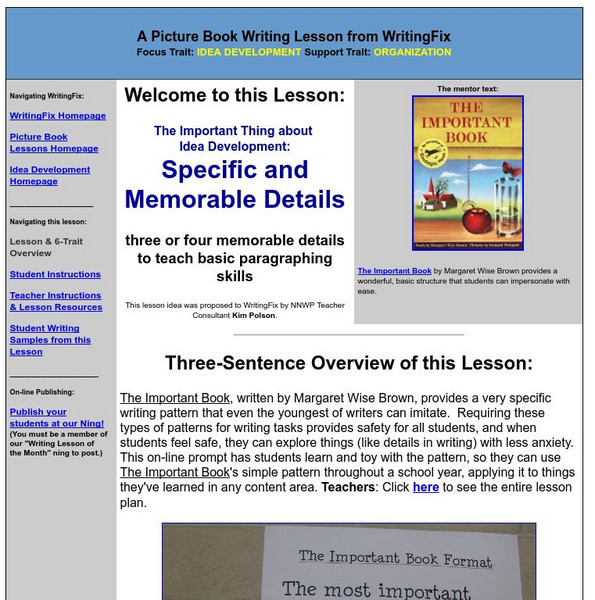




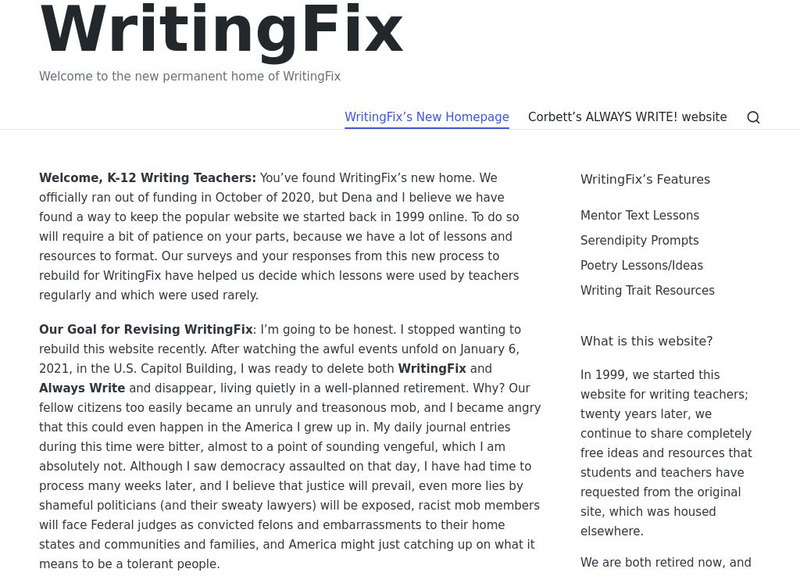

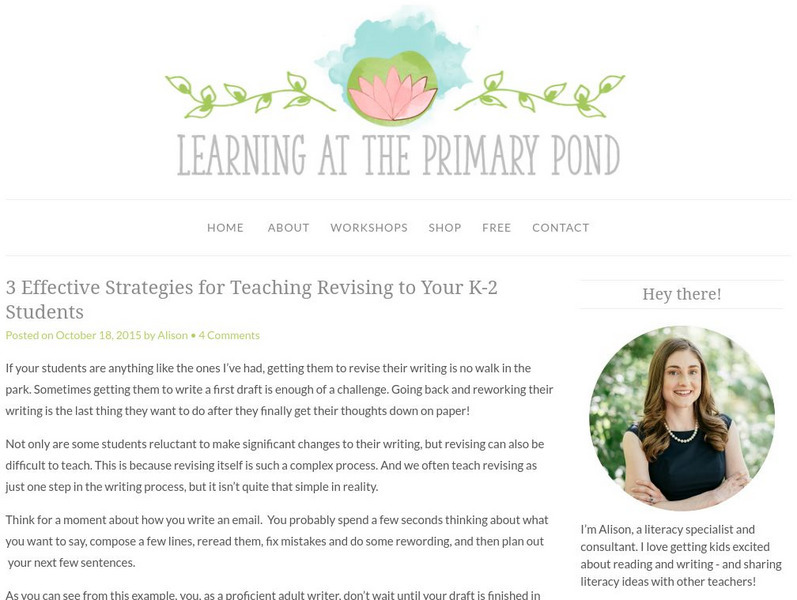



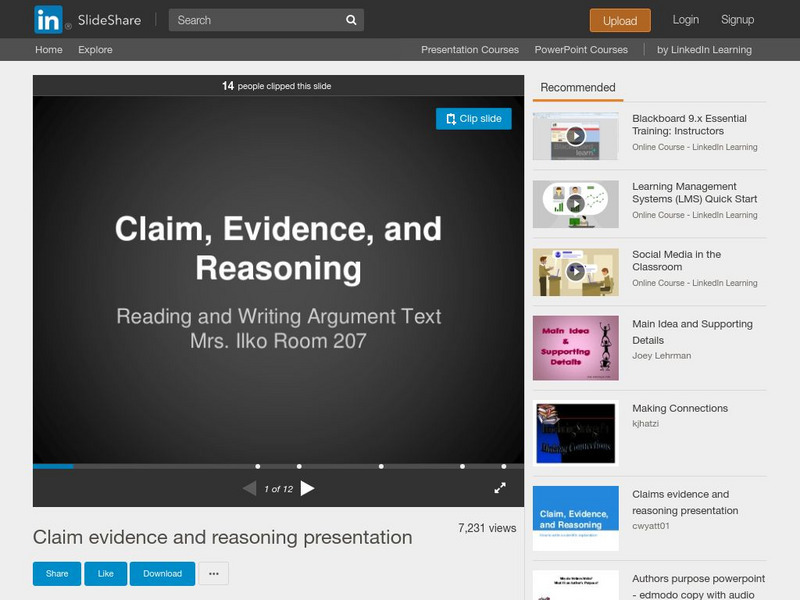

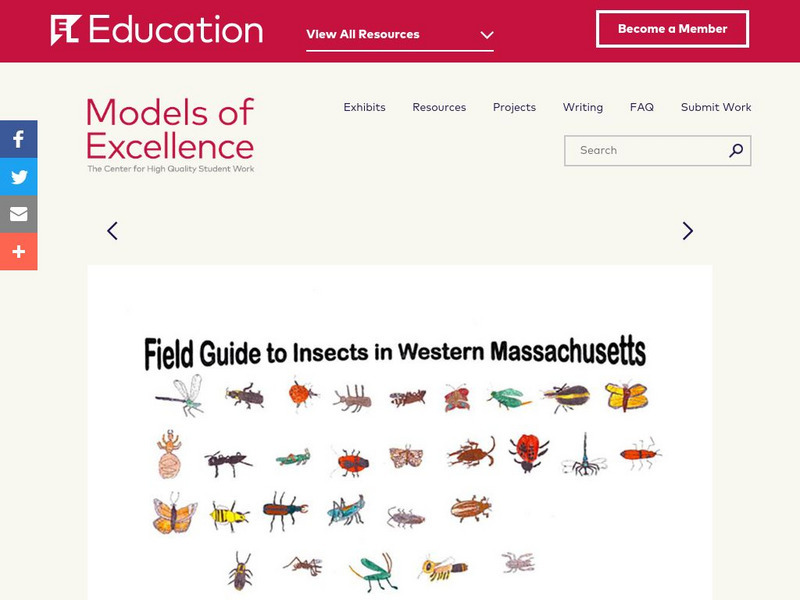
![De Paul University: Center for Urban Education: Animal Studies [Pdf] Unit Plan De Paul University: Center for Urban Education: Animal Studies [Pdf] Unit Plan](https://d15y2dacu3jp90.cloudfront.net/images/attachment_defaults/resource/large/FPO-knovation.png)